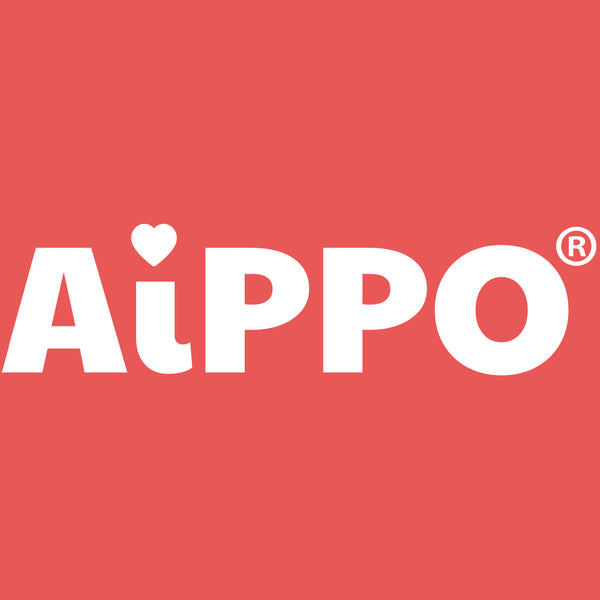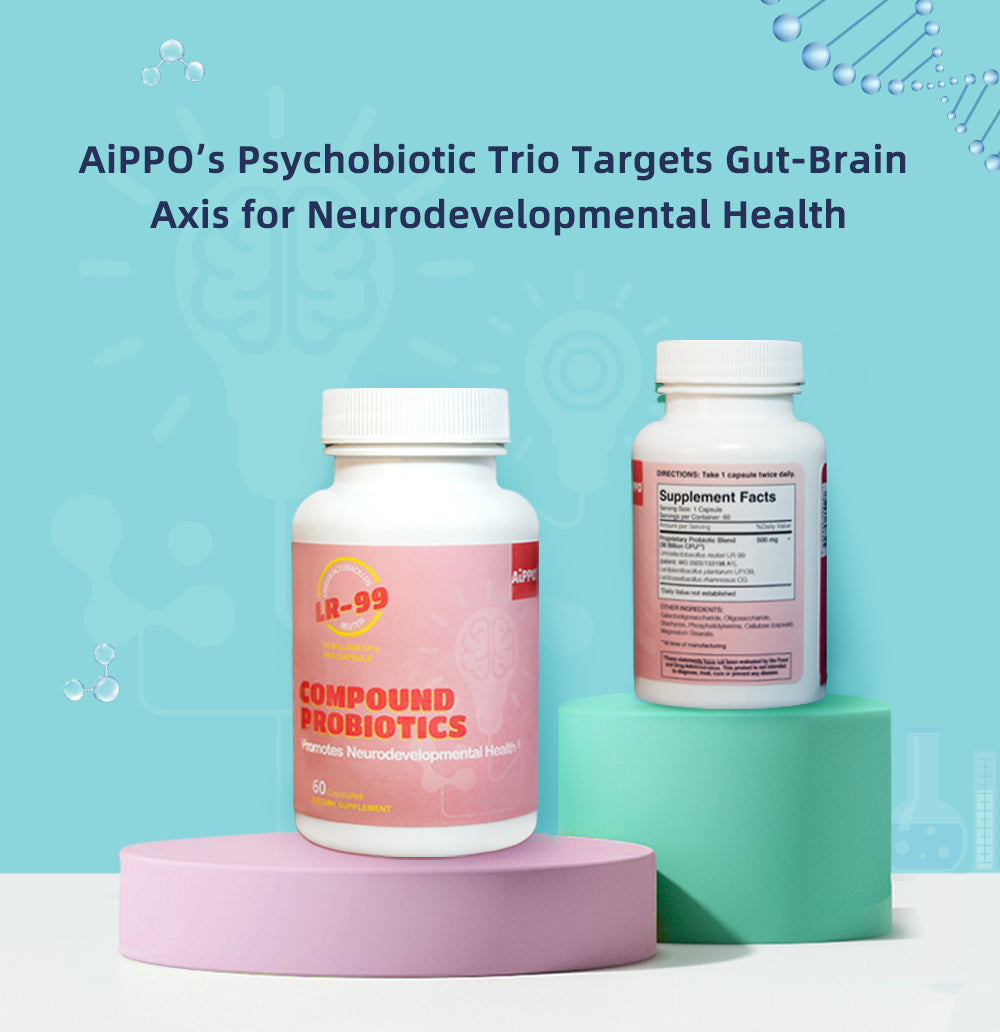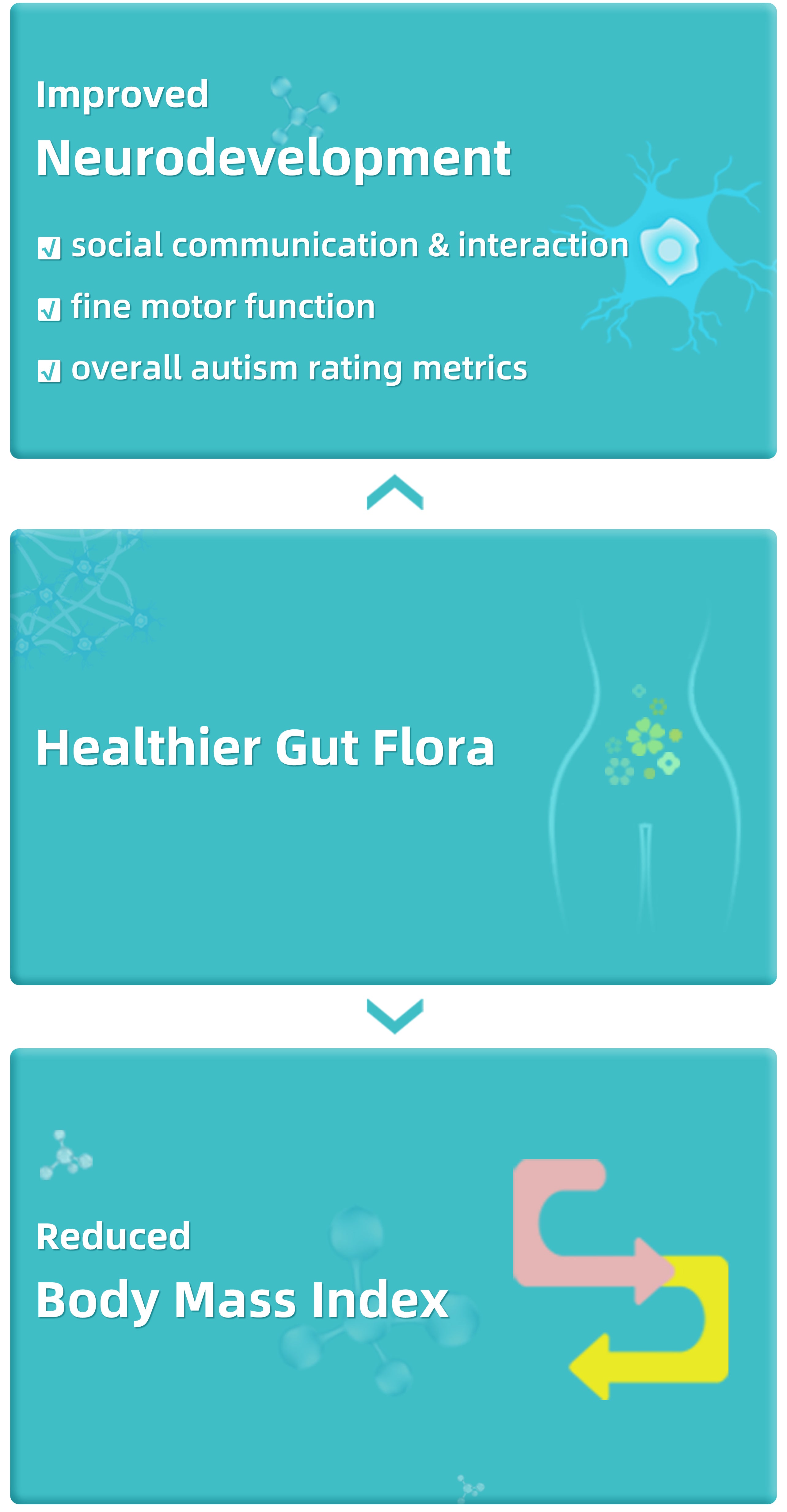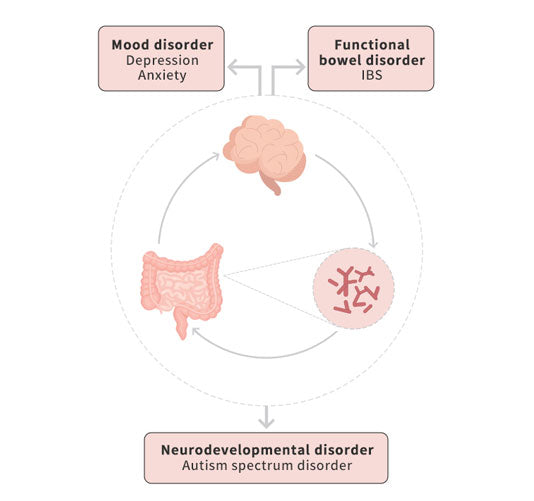
Gut-Brain Axis
Your gut and brain are connected by the vagus nerve (a major component of the autonomic nervous system which enables you to breathe, digest food, and swallow automatically). The vagus nerve allows the cross-talk between your gut flora and your central nervous system, making the gut-brain axis is a vital player in mental health and cognitive well-being.
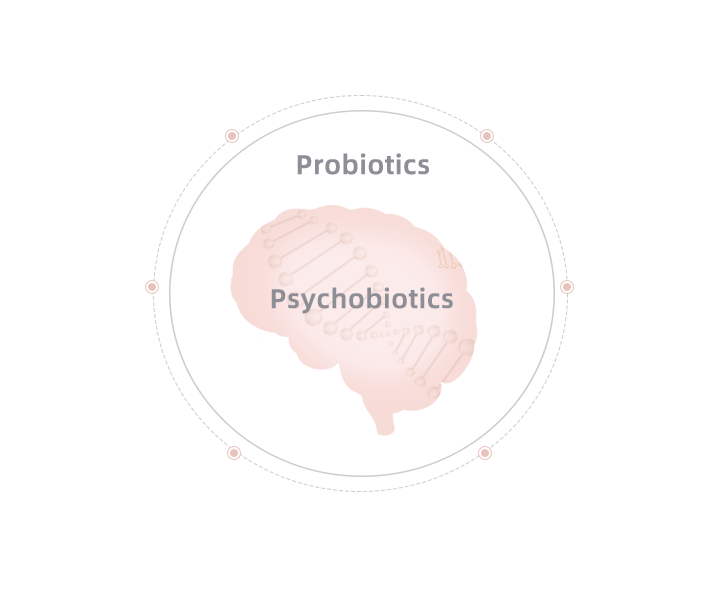
Psychobiotics
Probiotics are live, beneficial, and naturally occurring microorganisms. When consumed in adequate amounts, probiotics can promote a healthy balance of gut bacteria and support various aspects of overall health.
Psychobiotics are specialized probiotics that, when consumed in adequate amounts, can be neurologically active and induce positive impacts on your mental and brain health. Psychobiotics function by influencing the gut-brain axis, modulate the gut microbiota, and produce neuroactive compounds that modulate mood and cognitive function.
All psychobiotics are probiotics, not all probiotics are psychobiotics.
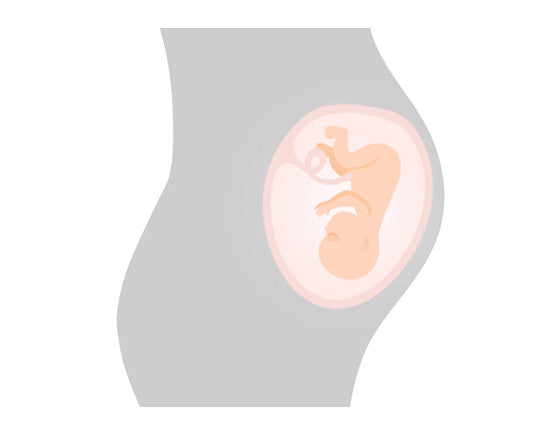
Microbiome & Human Development
Human development, particularly during infancy and early childhood, is influenced by the microbiota (collection of microorganisms) that inhabit the human body. The mother plays a crucial role in transmitting her own microbiota to her child during birth and through breastfeeding. The shaping of microbiome in young children has long-term influence on the development of immune system, neurodevelopment, and their overall their well-being.
LR-99: A Star Psychobiotic that Improves Core Symptoms of ASD
In a gold-standard clinical trial* conducted by Harvard Medical School¹, LR-99 was shown to improve core autism symptoms among children and young adults (aged 6 months – 22 yrs) with Prader–Willi syndrome (a disorder closely related to autism).
*A randomized double-blind placebo-controlled trial is considered the gold-standard of clinical trials.
-

The second psychobiotic in AiPPO is Lactiplantibacillus plantarum LP139
• Primarily as a beneficial lactic acid bacterium, L. plantarum aids in food fermentation and preservation. It has the potential to support gut health and immune function, and reduce food allergen. L. plantarum is also involved in the synthesis of certain vitamins and nutrients, such as B vitamins and folate.
-

The third psychobiotic in AiPPO is Lacticaseibacillus rhamnosus CG
• L. rhamnosus is the most clinically studied probiotic. In addition to supporting digestive health, enhancing immune function, and reducing inflammation, studies also showed that L. rhamnosus can protect against anxiety, depression and obsessive-compulsive disorder.
-

AiPPO also Includes 3 Prebiotics to Nurture a Healthy Gut Flora
Prebiotics are dietary fibers and compounds found in certain foods. They serve to stimulate the growth and activity of beneficial gut bacteria, thus promoting a balanced, healthy gut flora.
-

Last but not the least ---- Phosphatidylserine in AiPPO Lends Further Support of Brain Health & Cognitive Function
Phosphatidylserine (PS) is a phospholipid compound found in cell membranes, particularly in brain cells. Its main function is to support cognitive health and brain function by maintaining cell structure, aiding in the communication between brain cells, and regulating various cellular processes. PS is believed to enhance memory, focus, and overall mental acuity.
